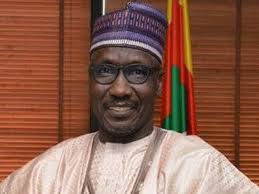Amid speculations that the dialogue between organized Labour and the Federal Government over the fuel price crisis may have stalled, the Nigerian National Petroleum Corporation (NNPC) has pledged to maintain the current ex-depot price of Premium Motor Spirit (PMS), popularly called petrol.
The pledge is coming amid reports that petroleum products marketers have stepped up their pressures on the government to jettison the dialogue with Labour and approve an increase in fuel prices.
Early this month, the marketers had openly canvassed an upward review of the retail petrol price from N162 per litre to an average of between N209 and N212 per litre.
A week later, the Petroleum Products Pricing Regulatory Agency (PPPRA) flew a kite with the publication of a new fuel price template that mirrored the marketers’ proposal, only to remove from its website, claiming routine publication after it kicked up serious confusion.
Last month, the NNPC, on the prodding of the marketers, was said to have written to the Minister of Finance, Budget and National Planning, Zainab Ahmed, to inform her that the high subsidy payment on petrol was unsustainable with increasing the current fuel price.
NNPC accepts paying subsidy
On Tuesday, the Group Managing Director of the NNPC, Mele Kyari, lamented the enormous burden on the corporation to bear over an N120 billion subsidy every month to keep the retail pump price of petrol at the current level of N162 per litre.
“The actual cost of importation of petrol and handling charges is about N234 per litre, while the government is selling at N162 per litre. What this means is that the NNPC is absorbing the cost differential recorded in its financial books
“Our current consumption level is about 60 million litres per day, and we are selling at N162 a litre. The current actual market price today is N234. That is about N72 difference per litre.
“The difference between the two (N72), multiply by 60million, times 30 days, will give you N129.6billion per month.
“This is a simple calculation to do. If one wants the exact figures from NNPC books, I do not have it at this moment, but it’s between N100billion and N120billion per month. We cannot continue to bear it,’’ he said.
Government, Labour dialogue
Since last September, the government and organised labour have been meeting in an attempt to find an acceptable framework for the pricing of petroleum products.
The sore point in the ongoing dialogue has always been what the retail pump price of petrol should be in the country under the deregulated downstream sector of the petroleum industry.
The government is saying it cannot afford to continue paying fuel subsidy, and that the retail price of petrol should be determined by the interplay of market forces of demand and supply under a deregulated petroleum products market.
Besides, the government is also arguing that the prevailing price of petrol in the country, which is considered the lowest in the West African sub-region, was encouraging massive cross-border smuggling of the commodity.
However, the Nigeria Labour Congress (NLC) and its affiliates say although it was in support of the removal of subsidy on fuel due to the largescale corruption by the officials involved in the handling of the process, it was opposed to deregulation policy based on the importation of petroleum products.
Rather, Labour says it would support a deregulation policy based on products supply from the local refineries, to avoid the exposure to the high foreign exchange required to sustain the importation of petroleum products.
So far, Labour appears not to shift its ground, while the government has come under serious pressures from fuel marketers to approve an increase in petrol price from the current N162 per litre to an average of between N200 and N212 per litre.
Consequently, ongoing government dialogue with Labour appears to have stalled, compelling the government to suspend further negotiations till Easter to allow for further consultation.
NNPC pledges to maintain current price
Meanwhile, the NNPC has said it would continue to maintain the current ex-depot price of petrol until the conclusion of the ongoing engagement with the organized labour.
Ex-depot price is the price marketers are allowed to buy petroleum products at the NNPC fuel depot. It is based on what the ex-depot price is that would determine the final retail price of the product at the pump.
At the moment, he said the corporation, as the supplier of last resort, was bearing the burden of importing refined petroleum products to guarantee energy security for the nation.
He said the NNPC has no intention to pre-empt the outcome of the ongoing engagement with labour by unilaterally increasing the ex-depot price of petrol, even though the corporation was bearing the burden of price differentials between the landing cost and pump price of petrol.
He said as a proactive organisation, NNPC has made adequate arrangements for robust stock of petroleum products in all its strategic depots across the country to keep the nation well-supplied at all times.
Obateru advised petroleum product marketers, not to engage in an arbitrary price increase or hoarding of petrol so as not to disrupt the market.
He also urged motorists not to engage in panic buying, stressing that NNPC was committed to ensuring energy security for the country as the supplier of last resort.
He assured marketers and all other relevant stakeholders in the downstream sector of sustainable collaboration for the public interest.



